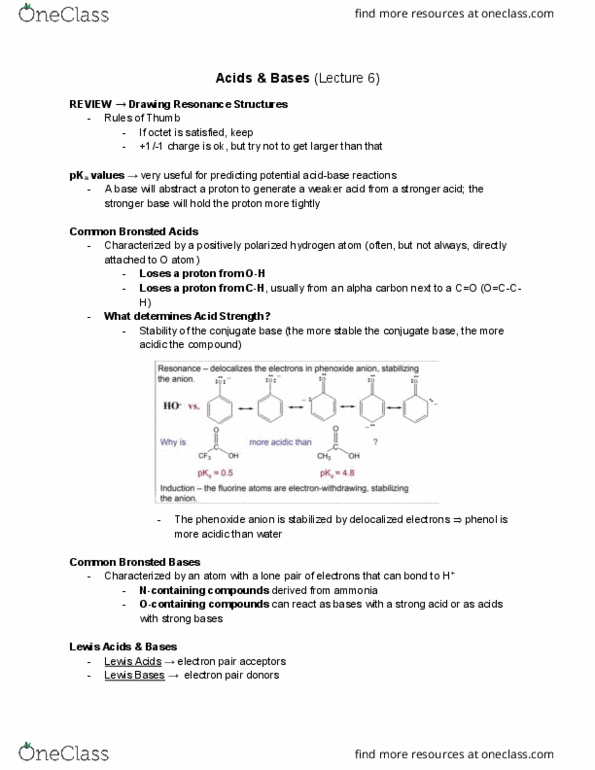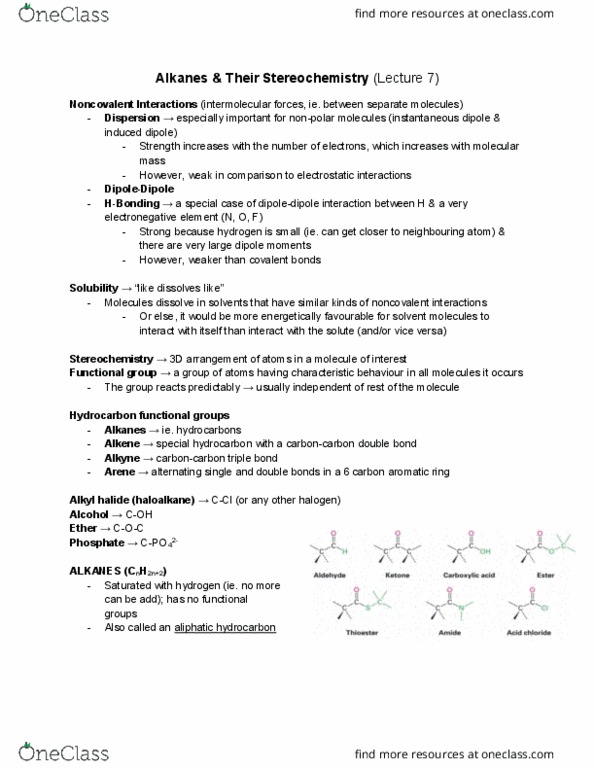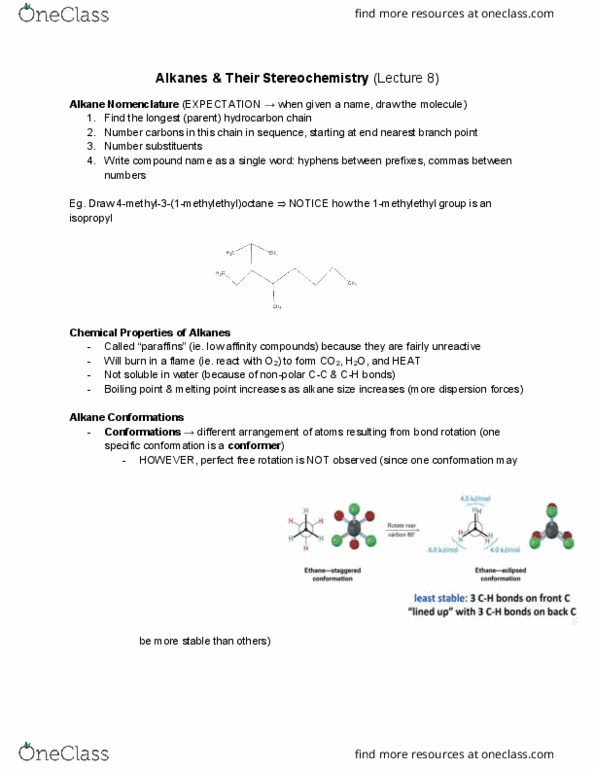CHM136H1 Lecture 7: lec 7 ecture 7:Alkanes & Their Stereochemistry
CHM136H1 verified notes
7/39View all
Document Summary
Noncovalent interactions (intermolecular forces, ie. between separate molecules) Dispersion especially important for non-polar molecules (instantaneous dipole & induced dipole) Strength increases with the number of electrons, which increases with molecular mass. However, weak in comparison to electrostatic interactions. H-bonding a special case of dipole-dipole interaction between h & a very electronegative element (n, o, f) Strong because hydrogen is small (ie. can get closer to neighbouring atom) & there are very large dipole moments. Molecules dissolve in solvents that have similar kinds of noncovalent interactions. Or else, it would be more energetically favourable for solvent molecules to interact with itself than interact with the solute (and/or vice versa) Stereochemistry 3d arrangement of atoms in a molecule of interest. Functional group a group of atoms having characteristic behaviour in all molecules it occurs. The group reacts predictably usually independent of rest of the molecule. Alkene special hydrocarbon with a carbon-carbon double bond.




